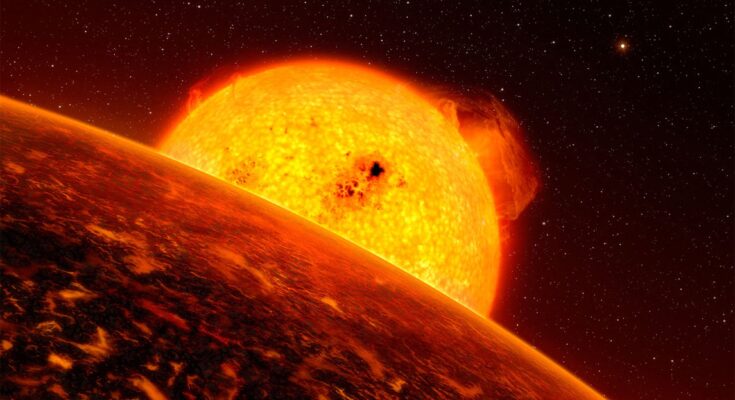Astronomers have been studying an exoplanet roughly the size of Jupiter for quite some time due to its insanely hot temperatures, powerful winds, and sideways rain formed of glass. However, now, data from the James Webb Space Telescope has conveyed another unusual feature. It smells of rotten eggs.
Scientists studying the atmosphere of the planet known as HD 189733b have utilized the James Webb telescope to spot miniscule quantities of hydrogen sulfide, a colorless gas which releases a pungent sulfuric smell and has never been observed outside of our solar system. The discovery furthers our knowledge of the composition of exoplanets.
The findings of a team from several institutions were published on Monday in the journal Nature.
A strange exoplanet with awful weather conditions, bigger than Jupiter
Researchers first located HD 189733b in 2005, eventually identifying it as a “hot Jupiter.” This means the planet has a chemical composition akin to Jupiter, the largest planet in our solar system, but with scorching temperatures.
Positioned around 64 light-years from earth, HD 189733b is the closest hot Jupiter that researchers can examine at this time, as the planet passes in front of its star. This is why it is one of the best-studied exoplanets.
“HD 189733 b is not only a gas giant planet, but also a ‘giant’ in the field of exoplanets because it is one of the first transiting exoplanets ever discovered,” lead study author Guangwei Fu, an astrophysicist at Johns Hopkins University, told CNN. “It is the anchor point for many of our understanding of exoplanet atmospheric chemistry and physics.”
The gas giant exoplanet is around 10 percent bigger than Jupiter. However, it has a much higher temperature, as it is 13 times closer to its star than Mercury is to our sun. HD 189733b takes just two earth days to complete a single orbit around its star, Fu said, according to CNN.
Its proximity to the star means the planet sits at a scorching average temperature of 1,700 degrees Fahrenheit (926 degrees Celsius) and experiences powerful winds that spray glass-like silicate particles sweeping sideways around the planet at 5,000 miles per hour.
The awful smell of rotten eggs?
When researchers opted to employ the Webb telescope to examine the exoplanet so as to determine what infrared light could reveal in HD 189733b’s atmosphere, they were certainly shocked by something else.
Hydrogen sulfide can be found on Jupiter, and it was predicted to exist on gas giant exoplanets. However, proof of the substance had been hard to come by outside our solar system, Fu told CNN.
“Hydrogen sulfide is one of the main reservoirs of sulfur within planetary atmospheres,” Fu said. “The high precision and infrared capability from (the Webb telescope) allow us to detect hydrogen sulfide for the first time on exoplanets, which opens a new spectral window into studying exoplanet atmospheric sulfur chemistry. This helps us to understand what exoplanets are made of and how they came to be.”



